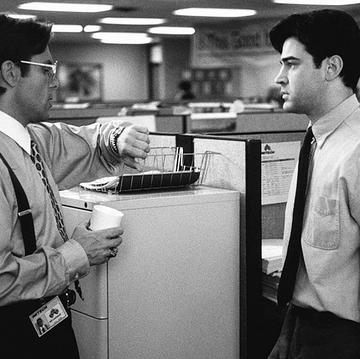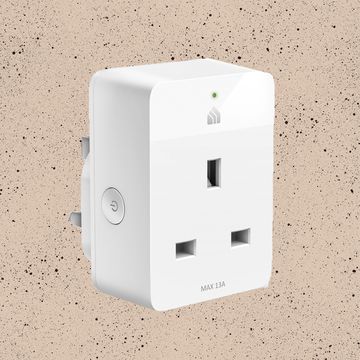My three-year-old has an iPad. Actually, this isn’t strictly true. My three-year-old has my wife’s iPad. She lent it to him one afternoon, and then he sat on it and dribbled on it and wiped his filthy three-year-old hands all over it and then we just sort of abandoned it to him, much in the same way that you’d abandon a supermarket sandwich if a stranger sneezed on it.
What I’m trying to illustrate is that, as parents, we’re quite lax at limiting our children's screen time, to the point that – and I promise this isn’t an exaggeration – the three-year-old recently punched the air and yelled “SCREEN TIME!” at the top of his voice.
I don’t admit this lightly, because in some parenting circles saying ‘I let my children look at screens’ is roughly equivalent to saying ‘I let my children play with fireworks’ or ‘I let my children inject heroin into their testicles’. But I am admitting it now.
Why? Because the purpose of this column is to unite all parents under a banner of shared honesty? No, it’s because the Royal College of Paediatrics and Child Health has just said that screen time is basically OK for kids, and I want you all to know that I was right. I was right, I was right, I was right, you were wrong and I was right. I’m the king of dads, and everyone should tremble beneath my terrible fists. Also, I was right.
Sure, there’s some context to grapple with. The Royal College of Paediatrics and Child Health released guidance saying that warnings about screen time are ‘often overstated’, and as we all know there’s a huge difference between ‘not enough evidence exists to make a definitive statement yet’ and ‘yay for screens’. But the main thrust seems to be that unless your kids are always looking at screens, and they eat incessantly whenever they’re looking at screens, and they never get any sleep, you’re probably fine.
In all honesty, I never wanted my children to have any screen time at all. When my wife fell pregnant with our first son, we looked each other in the eyes like a pair of dumb, sleep-bloated idiots and agreed that no child of ours would ever own an iPad. Or play videogames. Or own any toy whatsoever that hadn’t been carved from carefully distressed driftwood by an artisanal toymaker who lives inside a hollowed-out tree trunk.
But then our son turned up, the reality of parenting hit us square in the face and all our ideals immediately flew straight out the window. Because having children is exhausting and demanding, and sometimes you just need them to just sit in one place for a minute so you can actually get anything done. And when that happens, screens are an absolute godsend. Bung them in front of some dancing colours and shapes and you can just about buy yourself enough time to clean the house or cook some food or wash your face or do that big poo you’ve been saving up. My parenting mantra has become ‘whatever helps’, and the truth is that screens help a lot.
And, besides, what sort of maniac would deprive their kids of screens? That’s a terrible way to raise children. All the world is screens. Your children will grow up surrounded by them, and their job will probably require them to use one. If you sneak them into adulthood by only letting them play with wooden dolls, you’re just failing to equip them with the skills they need for life. They’re going to enter into the world of work blank-faced and scared, like my parents the first time they tried to operate a microwave.
I’m not saying that screens are exclusively a force for good, because of course they’re not. Leave a kid unattended in front of an autoplaying YouTube playlist and you’ll almost certainly return to find them watching an unofficial cartoon about the Paw Patrol being electrocuted in a swimming pool. But if you’re sensible, and use screens as part of an arsenal of other entertainment like toys and books and playgrounds and forests, there’s a massive chance that they’ll benefit hugely.
They’ll have improved coordination. They’ll have a better understanding of cause and effect, and language, and storytelling. And, crucially, they’ll give their parents enough time to actually cook them dinner sometimes. That’s not nothing.













